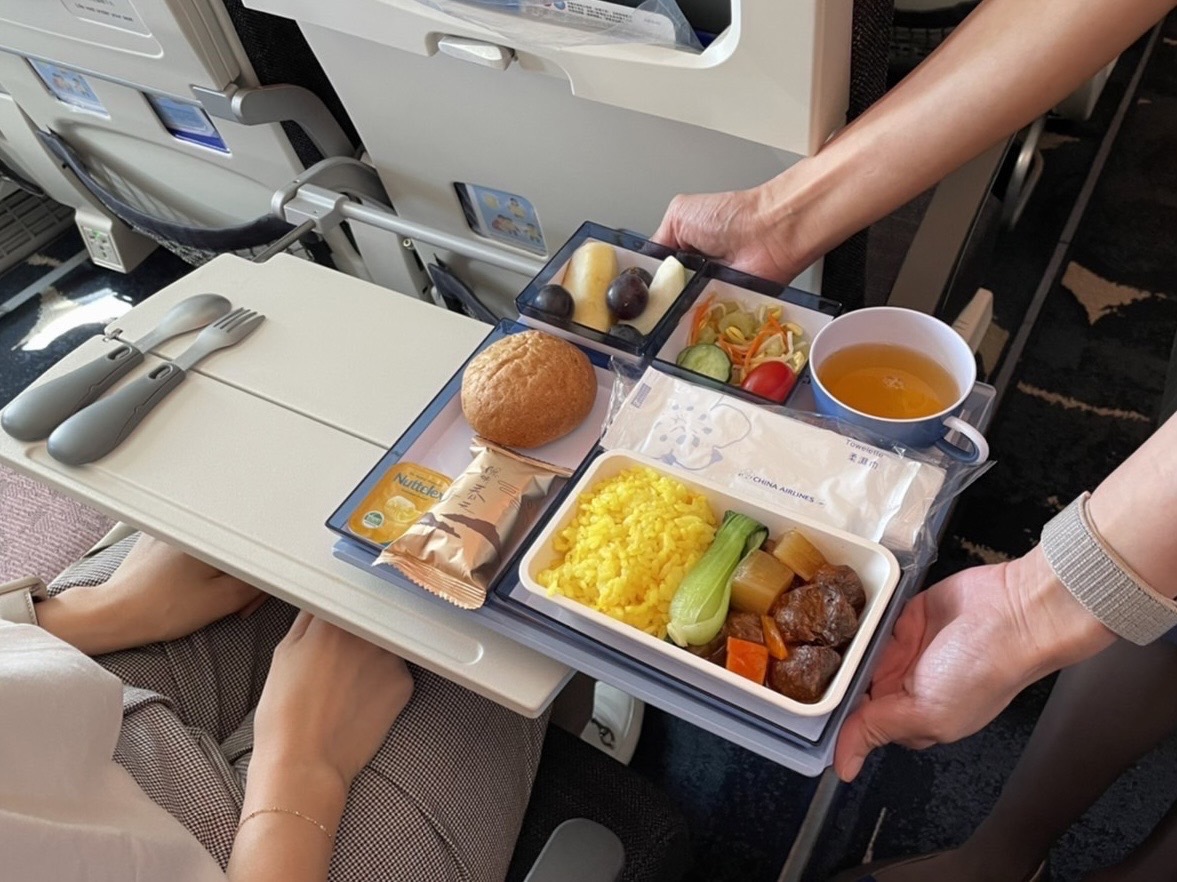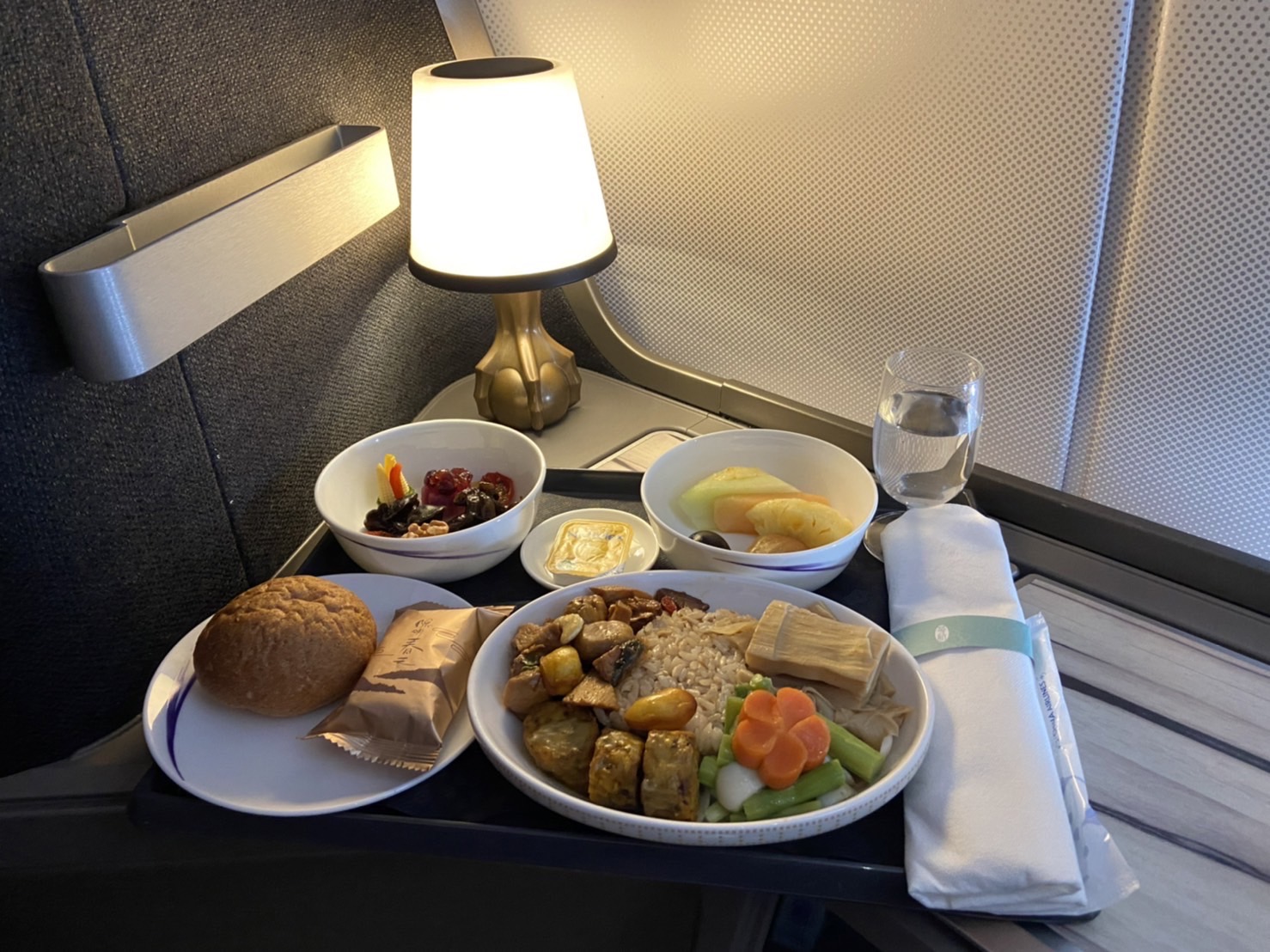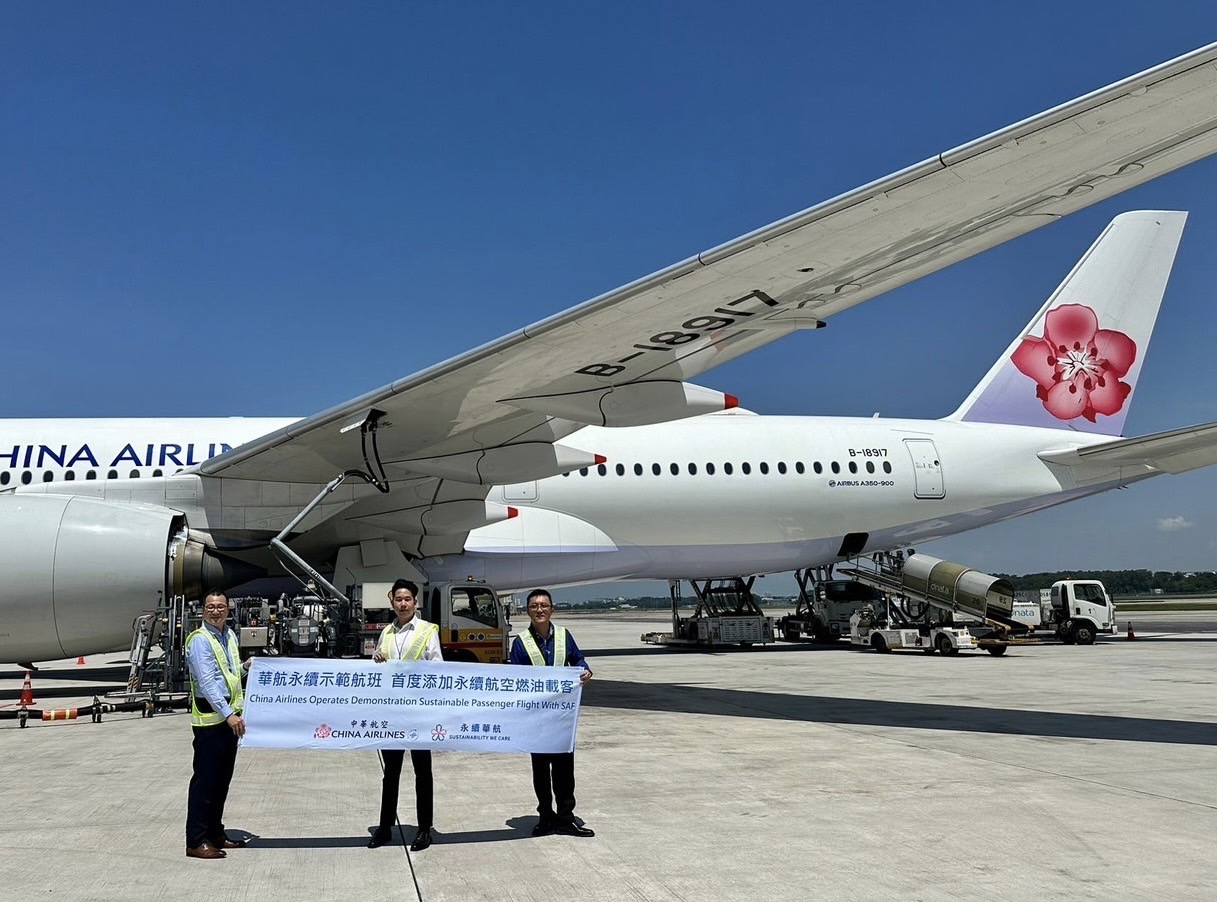China Airlines Sustainability Flight Leads the Way with Low Carbon Meals and Net Zero Carbon Emissions
Published: May 22, 2023China Airlines, the Taiwan-based carrier, operated its second “Sustainability Demonstration Flight” with CI753/754 on the Taipei and Singapore route as part of SkyTeam’s The Sustainable Flight Challenge (TSFC) today. The demonstration flight featured three key innovations and was the first passenger-carrying flight by a Taiwanese carrier to use Sustainable Aviation Fuels (SAF). Passengers onboard the flight showed their support through low-carbon plant-based meals. Net zero carbon emissions was achieved by round-trip sustainability demonstration flight through the redemption of carbon credits. The partnership between China Airlines and travelers achieved a new milestone in environmentalism.
The second SkyTeam TSFC involved 22 airlines and 72 flights this year. China Airlines chose to feature round-trip sustainability demonstration flight on the Taipei-Singapore route, incorporating up to one hundred eco-friendly and carbon reduction initiatives. Sustainability was maximized through new innovations such as digital airport services, localization of inflight meals, computerization of cargo operations, and mobile apron operations.
Enjoying the Fruits of the Earth with Low Carbon Plant-based Meals for All Cabin Classes
The low carbon plant-based meals were the highlight of the Taipei to Singapore CI753 sustainability demonstration flight. Travelers were invited to partake in the delicious “Clean & Green Plant-based Cuisine” low carbon menu jointly developed by China Airlines and the “Yang Ming Spring” restaurant, winner of the Michelin Green Star for two consecutive years. Three Cups King Oyster Mushroom & Fragrant Longan Rice is offered in Premium Business Class, while Premium Economy and Economy Class are served Plant-Based Braised Meat & Tumeric Rice. Both dishes are prepared with local, seasonal ingredients for travelers to enjoy. Pre-ordering meals helps to reduce food waste aboard the flight. Interest in plant-based meals was ten times higher than regular flights with more than half of all passengers aboard the flight opting for the low-carbon menu, setting a new record for all cabin classes.
First Passenger Flight by Taiwanese Carrier with SAF and ECO Travel for all Travelers
The Singapore to Taipei CI754 sustainability demonstration flight allowed China Airlines to reach its goal of operating Taiwan’s first passenger flight with SAF. Refueling at Singapore airport included 10% SAF that had undergone rigorous testing in accordance with the International Sustainability & Carbon Certification (ISCC) and ASTM international aviation fuel standards. SAF was first introduced in 2017 with the A350-900 and A321neo aircraft ferry flights. The CI753/754 sustainability demonstration flight marks a breakthrough for the Taiwanese aviation industry as it is the first passenger flight to utilize SAF.
The ECO Travel program was used by China Airlines to achieve carbon neutrality for the passengers and cargo aboard flights CI753/754. High-quality carbon credits obtained in strict accordance with international standards supported global renewable energy development and transition. The execution of net zero flights represented a new era in sustainable aviation.
Plastic Reduction, Recycling and Reuse for a Sustainable Circular Economy
The cabin supplies selected for the sustainability demonstration flights were produced using recycled plastics. PET bottles were recycled into eco-friendly textiles for blankets, pillow slips, and headrest covers. Plastic bags were substituted in favor of paper rings and tablecloths made from recycled coffee grounds were utilized. In-flight catering featured domestically produced Rainforest Alliance Certified tea products, locally produced cold-pressed fruit juices, beverages in FSC-certified packaging, and cutlery made from eco-friendly materials. Eco-friendly carry bags were also supplied with in-flight duty-free goods to encourage reuse by travelers. Waste sorting and recycling were enforced aboard the aircraft to reduce the environmental impact and to explore the unlimited possibilities of a sustainable circular economy.
Working Together to Mitigate Global Warming through Precision Loading and Fuel-Conservation Strategy
China Airlines achieved significant savings in weight by implementing an enhanced precision loading strategy. Travelers were encouraged to pre-order in-flight duty-free goods to ensure the availability of the merchandise they want. Dynasty Sky Reading also provided more than a hundred publications, books, and magazines for travelers to download to their mobile phones and other personal electronic devices. The most fuel-efficient route was developed for the flight plan on the day prior to take-off to improve fuel efficiency, reduce carbon emissions, and help slow global warming.
Digital Airport Services and Mobile Cargo Operations on the Apron
China Airlines is rolling out the use of online check-in and electronic boarding pass as part of innovation and environmental protection. The digital services offer greater convenience and reduce environmental impact through paperless operations. Where printed boarding passes are required, preference was given to suppliers with international environmental certification as well. The e-Cargo concept was introduced for cargo operations along with the promotion of e-AWB electronic waybills. Eco-friendly tarpaulins contained recycled materials were also used for stacking pallets and containers. Ground loading/unloading operations used mobile PDA devices instead of traditional paperwork, and electric tractors were used instead of conventional combustion-engine vehicles to further reduce carbon emissions and improve air quality.
May 22 is The International Day for Biological Diversity. China Airlines was the first airline and transportation company in Taiwan to adopt the “Forest and Biodiversity Conservation Commitment” in 2022. The sustainability demonstration flight today successfully highlighted China Airlines’ commitment to translating business strategy and sustainability philosophy into concrete actions that are aligned with the UN Sustainable Development Goals. China Airlines will continue to collaborate with its partners on related initiatives to realize the goal of Net Zero by 2050.









